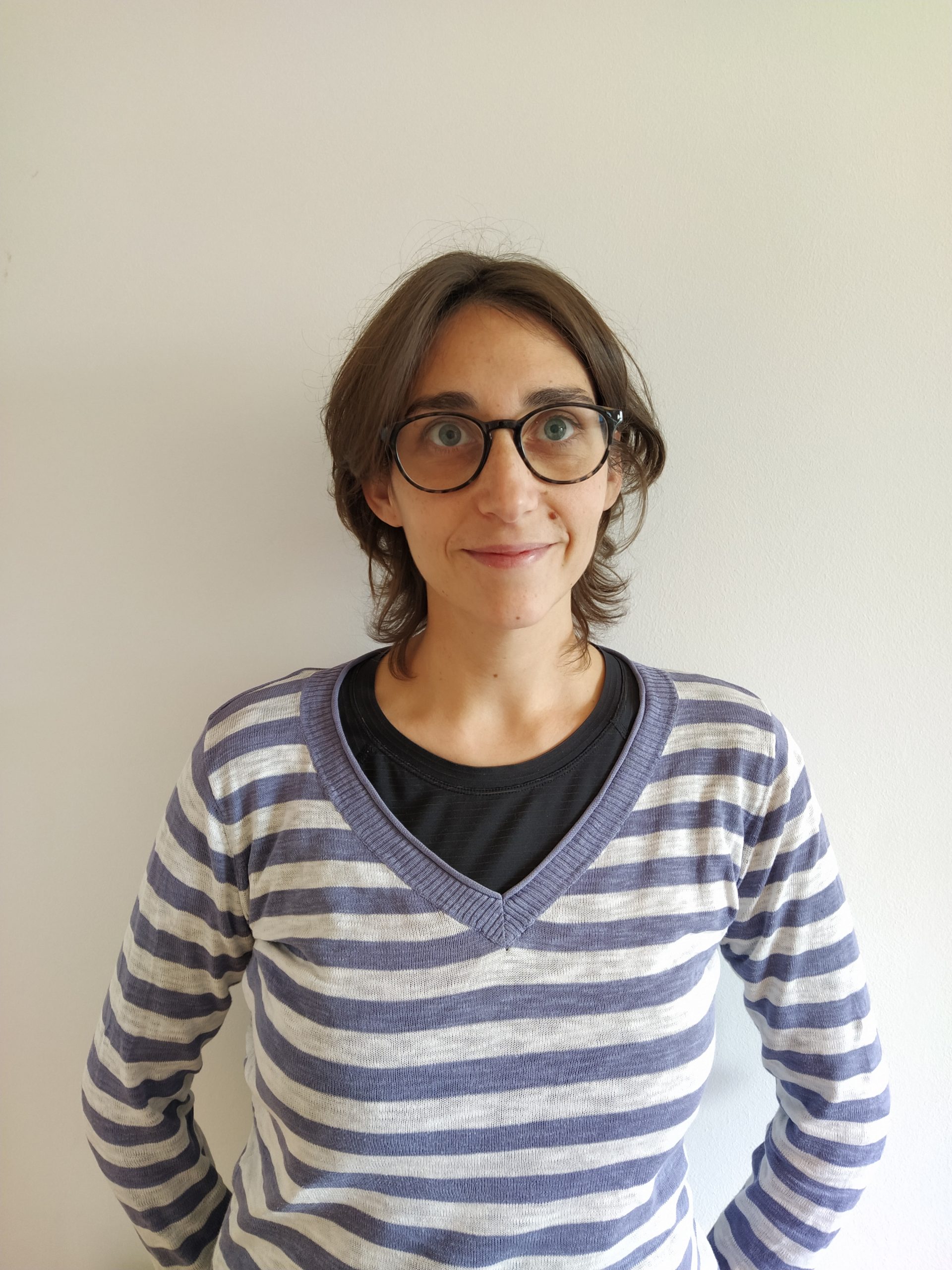Faces of ESLR: Elena Zwirner
As a child, I was often teased by my brother for my attempts at scientific theorizing. I particularly remember one time when I was looking at ants tandem-running and I said to myself “they’re probably on their way to school” – he laughed very loudly and told me I was as weird as his class mate that thought his desk could breath.
Well… I can’t argue with the weirdness claim, but he was dead wrong about the rest: for a start, the desk was made of wood and wood does breathe [1]; secondly, ants learn from other colony members and copy each other when in doubt – which is basically non institutional school. If only Google Scholar had existed back then, I would have hushed him for good.
Despite the teasing, however, I didn’t give up and paved my own winding road to becoming a behavioural ecologist. I started by studying a BSc in natural sciences in Trieste (Italy) to have a good basis on all-things-nature. Despite knowing that my main interest was social behaviour, I could not give up learning about geology, geography, and palaeontology (after all, what would the theory of evolution be without geological sciences!). Nonetheless, my fieldwork was more focussed. I joined Andy Russell’s group at the Fowlers Gap Research Station (Australia) and, later, the striped mouse project in Goegap Nature Reserve (South Africa) to study habitat quality and dispersal in the cooperatively breeding species chestnut-crowned babbler (Pomatostomus ruficeps) and striped mouse (Rhabdomys pumilio), respectively.
Later, with my MSc project at the University of Exeter (UK), I found a new interest in social learning. Under the supervision of Alex Thornton, I examined the efficacy of different social learning strategies in a tool manufacturing task, to test the hypothesis that teaching is essential for the accumulation of knowledge from one generation to the next – which is the basis of human cumulative culture. My MSc project was a turning point for me: firstly, I had never considered studying humans before; secondly, my general interest in how the environment – social and physical – shapes behaviour had to be redefined to accommodate the cultural facet, which is so all-encompassing in our species.
I continued studying human behaviour with a PhD on the effects of city-living on prosociality with Nichola Raihani at University College London (UK). We recorded the rates of help in city- and town-dwellers, with the expectation of seeing lower rates of help towards strangers in cities than towns due to the increased diffusion of responsibility and perceived anonymity of cities (among other reasons), but the only predictor of prosociality was the wealth level of the experimental area. I have to admit that at first these results bothered me. I was ready to start a whole new project on the impact of city-life on attention, memory, and stress; and, more generally, I was happy to promote a simpler life in the country… But, over time, I’ve got absorbed by the dispute on how poverty affects behaviours, and by its wider implications. Moreover, I often wonder how wealth could be best translated to the animal world: is wealth a physical attribute of the environment (i.e. lack/shortage of resources, lower quality habitat); social (i.e. lower social status and its repercussions); or cultural (i.e. ‘poverty trap’ that prevents you from attaining good schools, good jobs, and therefore good earnings)?
When my PhD was over, I spent a fairly long time trying to earn some money (out of academia), and later taking care of my baby daughter. Only after her first year, I went back job hunting. And got very very lucky. I am now a postdoc at Université Clermont Auvergne (France) working with populations affected by volcanoes and other natural hazards to understand how the harshness and unpredictability of the environment affect trust and prosociality. The main hypothesis is that the possibility of experiencing resource scarcity in the future will shape social tolerance and lead to parochialism. This project also lends itself to the opportunity of separating the impact on behaviour between the physical, social, and cultural environments. And it gives me the opportunity to use some of my rusted geology knowledge, which I have been missing. In fact, despite all the work on human behaviour, I still miss my fieldwork in the wilderness and my animal models. So much so that I am now working to set up a field site along the Alpine River Tagliamento (Italy) to study the adaptations of small mammals to life on flood-prone islands. The pilot projects are running well, and my fingers are crossed for the upcoming funding rounds!
[1] https://www.agedwoods.com/breathing-wood/ 🙂
About the author
Elena Zwirner is a behavioural ecologist with a multidisciplinary background spanning from ecology, ethology, psychology and anthropology. Her research interests lie primarily in understanding how the environment (social and physical) influences behaviour. She has worked on the environmental factors affecting dispersal in cooperative breeding mammals and birds; on the social learning mechanisms underpinning cumulative culture; and on the effects of city-living on prosociality and trust in humans. Elena just started her first post-doc at the LAPSCO CNRS, Université Clermont Auvergne (UCA) where she works with Guillaume Dezecache on the effects of living under environmental uncertainty on trust and prosociality. Her project will look at whether life near active volcanoes affects the development of interpersonal trust and prosocial behaviour. In particular, she will look at the impact that risk perception has on different cognitive skills and on social tolerance.
